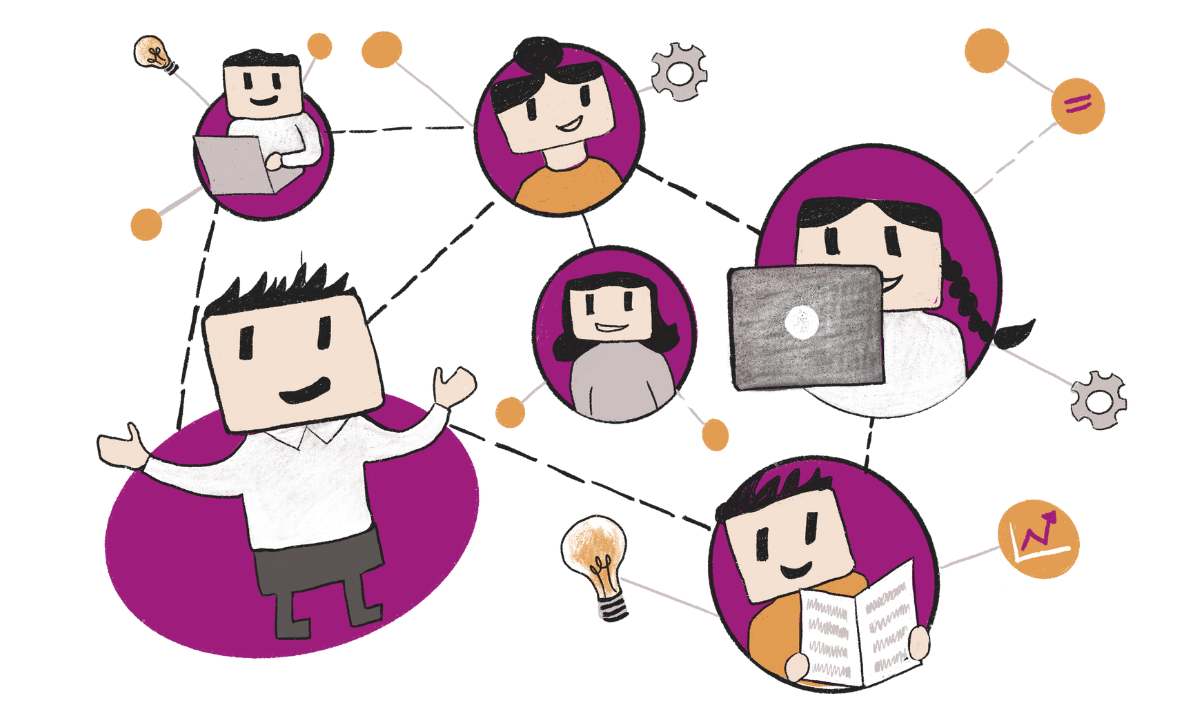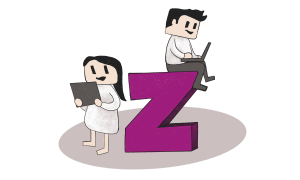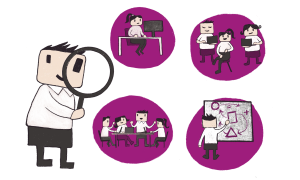Is the role of instructors and teachers changing in the Connectivism Era?
The rise of connectivism, a learning theory emphasising networked knowledge and continuous adaptation, presents a compelling case for a shift in the teacher as the font of all knowledge in a digital age. Instead of solely acting as subject-matter experts dispensing information, teachers or learning practitioners are increasingly facilitating learning experiences that empower students to become active knowledge constructors.
Teachers as the authoritative content deliverer
Ever since Greek students sat at the knee of Socrates, teachers held the primary responsibility for transmitting knowledge. Is delivering knowledge from the front of the classroom or lecture theatre the only way for today’s student to learn or is there room for a mix of learning modalities?
Who better to pass on knowledge than an expert with experience?
Most of us with school age children have experienced those moments at the beginning of a school year when we find out which teacher’s class our child will be attending over the next 12 months.
The Traditional Model: The expert in the class.
Knowledge repository and learning delivery.
- Teachers hold the primary responsibility for transmitting knowledge.
- Students have a passive role, receiving information during a lecture.
- Assessment often focused on these memorised details.
- Little opportunity to explore, question, or connect new information to their existing knowledge.
The Rise of Connectivism: Facilitating learning experiences.
Knowledge as a Network empowering learners.
- Connectivism views knowledge as a constantly evolving network of information.
- Learning practitioners facilitate this exploration helping students develop analytical skills.
- The focus shifts towards developing critical thinking, problem-solving, and collaboration skills.
- Students become active participants in constructing their own understanding.
Benefits of the learning practitioner as Facilitator:
- Students develop a deeper understanding of concepts that’s connected to the real world.
- The ability to learn and adapt in a rapidly changing world becomes a core skill.
- Students develop 21st century skills like communication, collaboration, and information literacy, crucial for success in the digital age.
Challenges and Considerations:
- What teacher or instructor training is required to transition from content delivery to facilitation?
- What professional development opportunities exist in new pedagogical approaches and technologies?
- How will we change assessment to assess critical thinking and collaboration, moving beyond traditional tests towards more authentic, scenario-based evaluation methods?
- Both students and learning practitioners need to adapt to a new learning environment where exploration and independent learning are valued.
The rise of connectivism highlights the need for a shift in the role of the way we teach, instruct and facilitate in a digital world where knowledge is more accessible, served by algorithms and artificial intelligence from a range of reliable sources. By transitioning to this facilitation role, learning practitioners will empower students to become active knowledge constructors, fostering deeper learning and preparing them for a world where continuous learning is essential for success.
Embracing the Future of Learning
In today’s interconnected world, where information is at our fingertips and collaboration spans the globe, the role of educators is evolving. By embracing connectivism, we can transform learning environments to be more dynamic and responsive, fostering a culture of continuous learning and adaptability. This shift not only benefits students but also prepares them for the challenges and opportunities of the future.
As we navigate this transition, it is essential to support learning practitioners with the training and resources they need to succeed. By doing so, we can create a more engaging, effective, and inclusive education system that meets the needs of all learners in the digital age.
A little about Spinifex
Need some help getting your workplace or educational institution adapting to the principles of connectivism? Or simply want to learn more. Get in touch.



